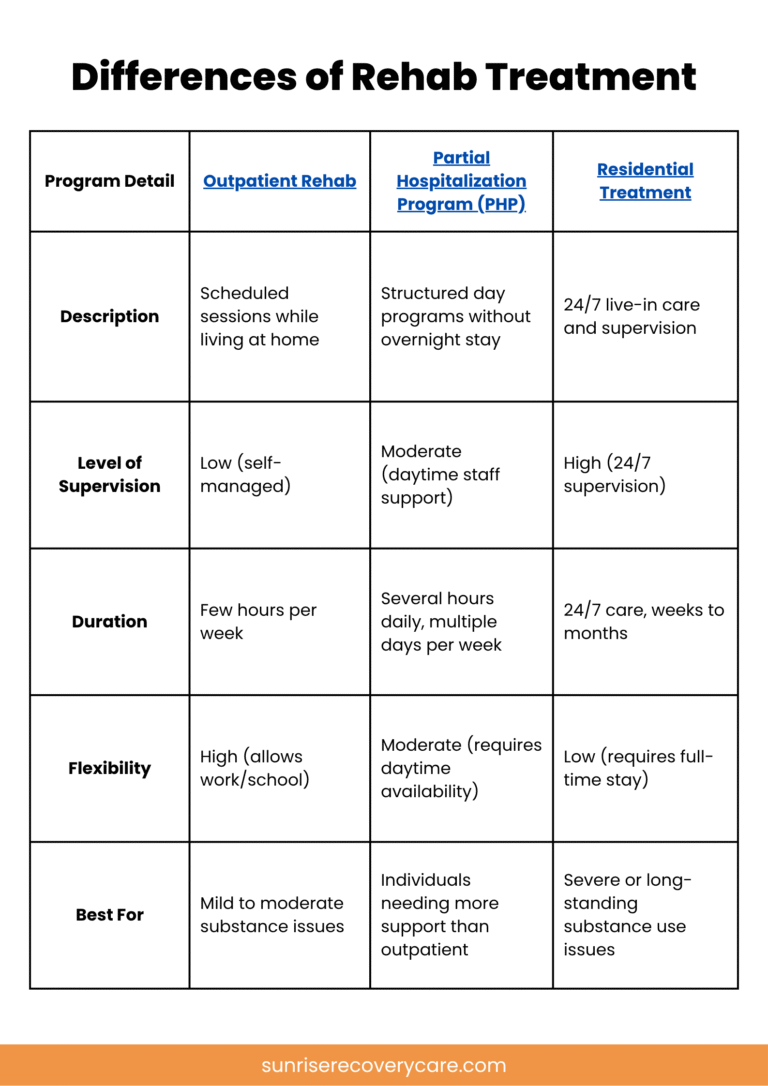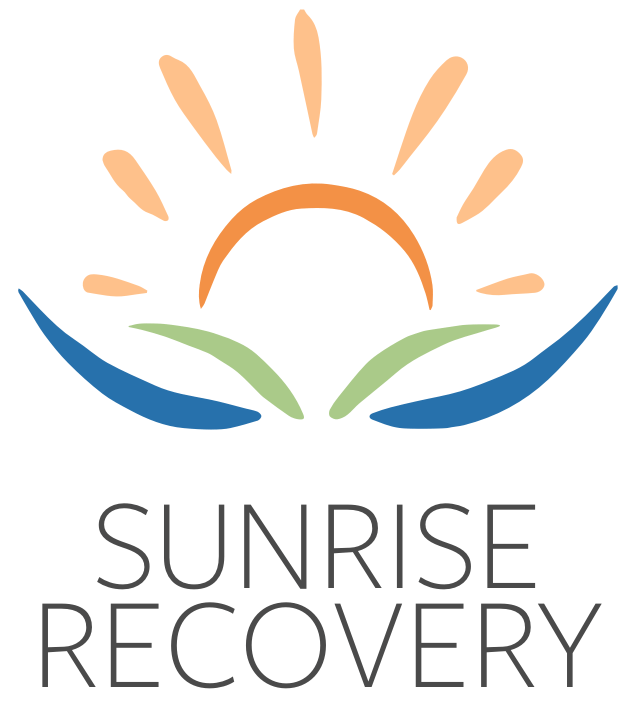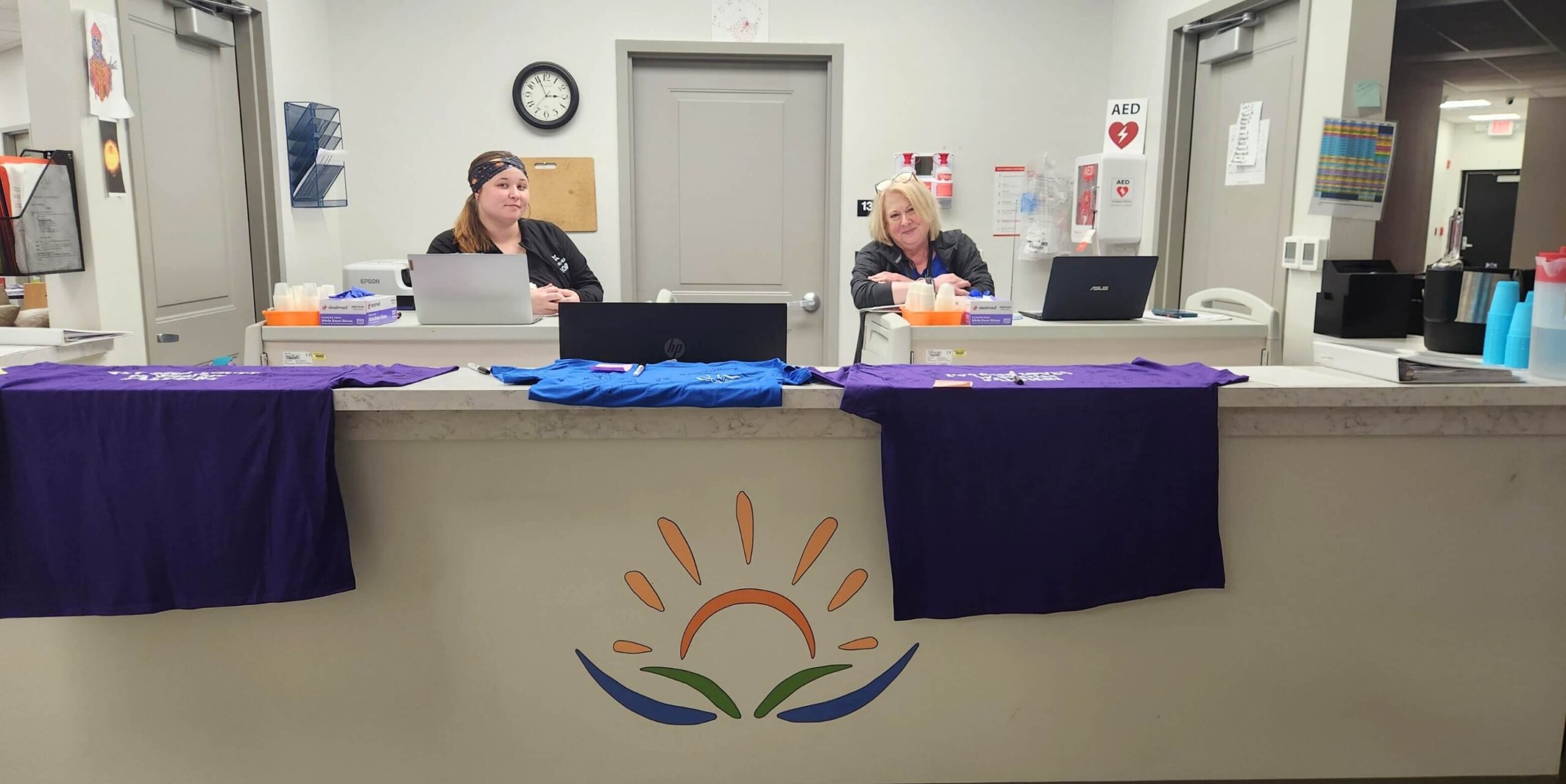Do I need rehab? This question often comes up when substance use begins to affect daily life, even if those changes are not always obvious from the outside. Many people delay seeking help because their situation does not match the stereotypes they have seen in media or heard from others. They may still be working, caring for others, or meeting responsibilities, which makes the need for help harder to recognize.
Addiction develops over time and often starts with behavior that feels manageable. It can gradually lead to health issues, strained relationships, and emotional instability if left unaddressed. Recognizing the signs early creates space to make thoughtful decisions before things get worse.
This article will walk you through how to recognize warning signs, explore available rehab services, and understand when it may be time to seek a treatment option. You might be exploring options for yourself or someone you care about, and the goal is to offer clear, honest, and compassionate guidance backed by evidence so you can make an informed decision without fear of judgment.
Internal Signs: What Your Mind and Body Are Telling You
Physical Warning Signals
Early signs of substance use affecting your health include developing tolerance and experiencing withdrawal symptoms like shaking or nausea. You may notice physical changes such as frequent illness, fatigue, or disrupted sleep and appetite that worsen if left unaddressed. Persistent symptoms can lead to serious health risks that often require care through inpatient rehab.
Mental and Emotional Indicators
Psychological changes like a constant focus on substances and repeated loss of control often signal emotional distress. Mood swings, irritability, and cycles of guilt or shame can show difficulties in managing emotions. Persistent symptoms may call for dual diagnosis treatment to address both addiction and mental health together.
Behavioral Changes You Might Recognize
Lifestyle shifts and changing priorities often occur as substance use takes precedence over daily responsibilities and relationships. Risk-taking behaviors such as driving under the influence and secrecy, including hiding use or lying about whereabouts, tend to increase over time. If you notice these patterns in yourself or others, asking “do I need rehab” can help you determine if professional help is needed to stop further decline and begin the path to rehab treatment.
External Signs: What Others May Notice
Changes in Relationships and Social Life
Social withdrawal patterns often develop as substance use creates emotional distance, making loved ones feel disconnected or less engaged. This distancing can lead to increased relationship conflicts and trust issues, with arguments becoming more frequent and harder to resolve. Isolation from non-using friends and family quietly preparing for treatment may signal growing strain on your support system.
Work and Academic Performance
Substance use can gradually impair your ability to meet work or academic demands, resulting in declining productivity, frequent absences, and difficulty concentrating. These changes often lead to concerns from employers or professors and may threaten your job or academic standing. Understanding the differences between outpatient and inpatient rehab can help you choose a treatment option that fits your needs while balancing professional or academic responsibilities.
Financial and Legal Consequences
Addiction frequently causes money management problems, such as draining savings, accumulating debt, and missing essential payments. Legal troubles, including DUIs, arrests, and fines, can result in court involvement and affect your employment status. When financial strain and legal issues continue to escalate, it signals that the situation needs to be addressed before causing further harm.
Readiness for Change: Internal Motivators
Recognizing Personal Motivation
Recognizing the need for change does not require hitting “rock bottom,” as motivation can come from different points. When your values no longer align with your actions and you begin to envision a healthier future, this awareness can spark meaningful change. A growing focus on health and well-being often motivates individuals to start the path toward rehabilitation.
Future-Focused Thinking
Developing clear goals, such as returning to school or rebuilding trust, can provide important motivation for change and prompt you to ask, “do I need rehab.” Imagining a life without substances helps create a hopeful vision that guides recovery efforts. Engaging with peer support networks strengthens this commitment and helps maintain focus on long-term success.
Making the Decision: Practical Steps Forward
Self-Assessment Tools and Questions
Self-assessment tools provide a way to evaluate whether substance use has become problematic by encouraging honest reflection on its impact. Common screening instruments like the AUDIT and CAGE-AID help identify signs of dependence and risky behaviors. When these tools indicate concern, seeking a professional evaluation can guide decisions about pursuing rehab treatment.
Exploring Treatment Options
When you begin to question “do I need rehab,” the first thing that comes to mind is often which treatment option best fits your situation, since programs vary widely in care level, supervision, and flexibility.
The following table compares common treatment types to help you understand their differences and find the best match for your needs.

Programs like dual diagnosis treatment address both substance use and co-occurring mental health issues simultaneously, ensuring the treatment intensity matches individual needs for the best outcomes.
Overcoming Common Barriers
Many people avoid seeking treatment due to fear of judgment, social stigma, or concerns about how their work, family, or financial situation will be affected. Denial and minimization can make it difficult to acknowledge the severity of substance use, delaying important decisions to get help. Addressing these emotional and practical obstacles is critical to beginning a treatment path and building a foundation for lasting recovery.
Support Systems and Professional Guidance
The Role of Family and Friends
Supportive family and friends can encourage treatment by offering understanding and accountability, while enabling behaviors may unintentionally delay recovery. Recognizing the difference between support and enabling is important for creating a healthy environment that promotes positive change. In some cases, professional intervention services can help families navigate these challenges and motivate their loved ones to seek help.
Medical and Mental Health Professionals
Primary care physicians play an important role in identifying substance use problems and helping patients answer the question “do I need rehab” by referring them to specialized care. Addiction specialists and therapists provide targeted treatment plans and counseling to address the complexities of addiction. For individuals with co-occurring mental health conditions, psychiatric care is essential to ensure integrated treatment and support lasting recovery.
When to Act: Timing Your Decision
There’s No Perfect Time
The question “do I need rehab” often arises too late because addiction worsens gradually, affecting health, relationships, and daily life even when it seems manageable. Many people delay seeking treatment due to fear, denial, or the belief that they can handle it alone, which can cause the problem to escalate. These delays increase the risk of serious consequences, so recognizing when to act early is crucial for a better chance at recovery.
Crisis vs. Planned Intervention
Deciding whether to seek treatment in a planned way or during a crisis often depends on recognizing emergency warning signs such as overdoses, arrests, or severe health issues. Planned intervention offers greater control over your treatment journey, allowing for better preparation and a more personalized care experience. Regardless of how you enter rehab, ongoing aftercare and support play a crucial role in maintaining lasting recovery and stability.
Final Thoughts
Asking yourself “do I need rehab” is never an easy question, but paying close attention to changes in your health, emotions, behavior, and relationships can help guide your decision. Signs like declining work performance, strained family ties, and financial or legal challenges often indicate the need for professional support. Recognizing these factors can assist you in deciding whether seeking treatment is the right next step.
Sunrise Recovery offers specialized dual-diagnosis care with integrated treatment plans designed to address both substance use and co-occurring mental health conditions for lasting recovery. Taking the first step toward help can feel overwhelming, yet it is a powerful move toward reclaiming your life.
If you or a loved one is struggling, don’t wait for a crisis to act. Contact Sunrise Recovery today to explore your options and begin your healing journey. What could your life become if you took that first step now?
Frequently Asked Questions (FAQs)
How do I know if my drinking or drug use has become a serious problem?
You might need help if your substance use disrupts daily life, causes withdrawal symptoms, or leads to health and legal issues, which may indicate you need to go to rehab for drug or alcohol abuse.
What’s the difference between being dependent on substances and being addicted?
Dependence involves physical withdrawal symptoms, while addiction includes compulsive use despite harm and often requires treatment such as drug rehab or alcohol rehab.
Does Sunrise Recovery offer different levels of treatment to fit my schedule and needs?
Sunrise Recovery provides a range of options, including outpatient rehab and residential care, to accommodate different lifestyles and treatment needs.
What should I expect during my first contact with Sunrise Recovery?
Your initial contact will involve a confidential assessment to determine your needs and recommend appropriate care, including information on how long treatment may last and support for ongoing after rehab.
How does Sunrise Recovery handle dual-diagnosis treatment for people with both addiction and mental health conditions?
Sunrise Recovery delivers integrated dual-diagnosis treatment that addresses both addiction and mental health conditions together for comprehensive and effective care.







